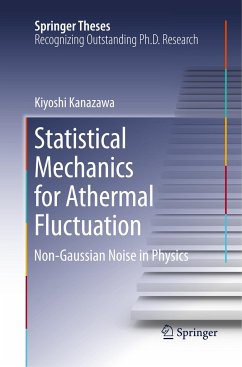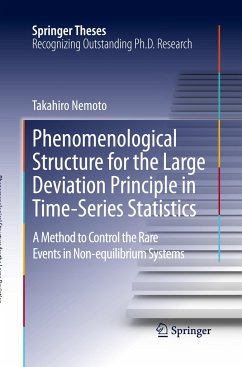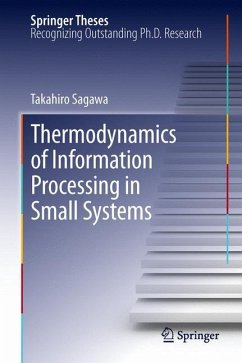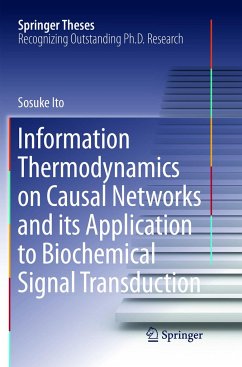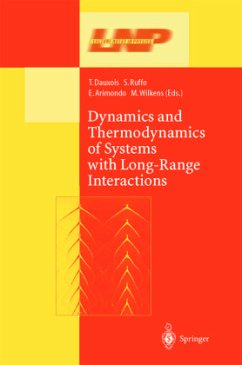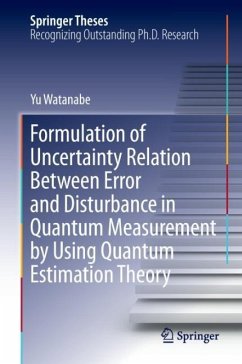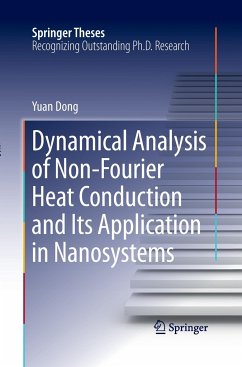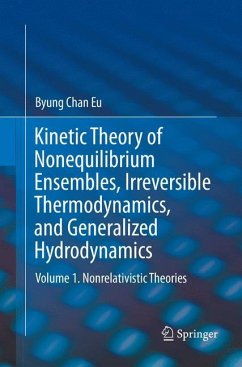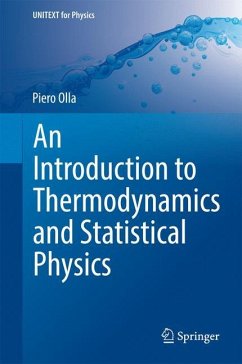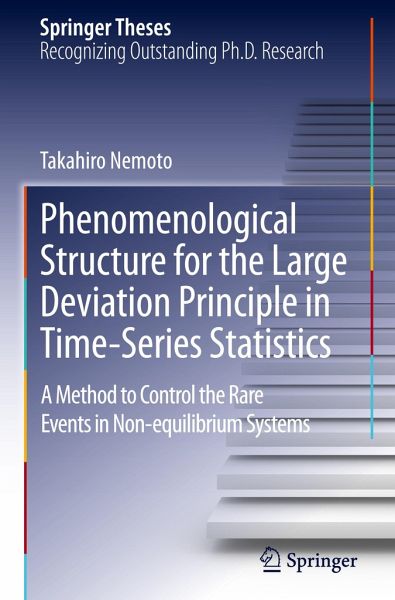
Phenomenological Structure for the Large Deviation Principle in Time-Series Statistics
A method to control the rare events in non-equilibrium systems
Versandkostenfrei!
Versandfertig in 6-10 Tagen
76,99 €
inkl. MwSt.
Weitere Ausgaben:

PAYBACK Punkte
38 °P sammeln!
This thesis describes a method to control rare events in non-equilibrium systems by applying physical forces to those systems but without relying on numerical simulation techniques, such as copying rare events. In order to study this method, the book draws on the mathematical structure of equilibrium statistical mechanics, which connects large deviation functions with experimentally measureable thermodynamic functions. Referring to this specific structure as the "phenomenological structure for the large deviation principle", the author subsequently extends it to time-series statistics that can...
This thesis describes a method to control rare events in non-equilibrium systems by applying physical forces to those systems but without relying on numerical simulation techniques, such as copying rare events. In order to study this method, the book draws on the mathematical structure of equilibrium statistical mechanics, which connects large deviation functions with experimentally measureable thermodynamic functions. Referring to this specific structure as the "phenomenological structure for the large deviation principle", the author subsequently extends it to time-series statistics that can be used to describe non-equilibrium physics.
The book features pedagogical explanations and also shows many open problems to which the proposed method can be applied only to a limited extent. Beyond highlighting these challenging problems as a point of departure, it especially offers an effective means of description for rare events, which could become the next paradigm of non-equilibrium statistical mechanics.
The book features pedagogical explanations and also shows many open problems to which the proposed method can be applied only to a limited extent. Beyond highlighting these challenging problems as a point of departure, it especially offers an effective means of description for rare events, which could become the next paradigm of non-equilibrium statistical mechanics.



